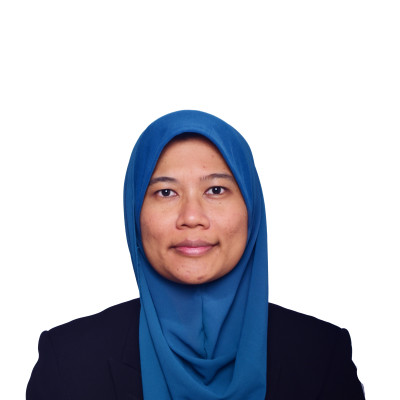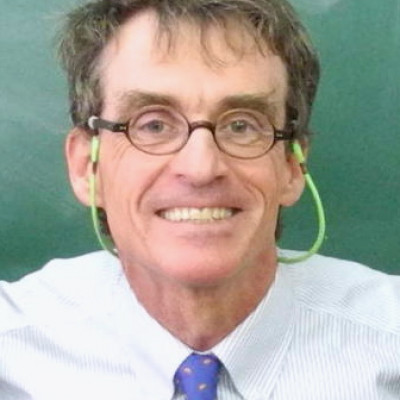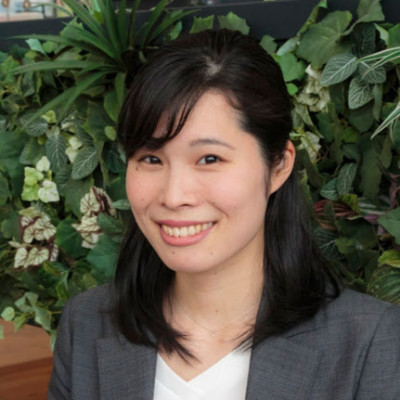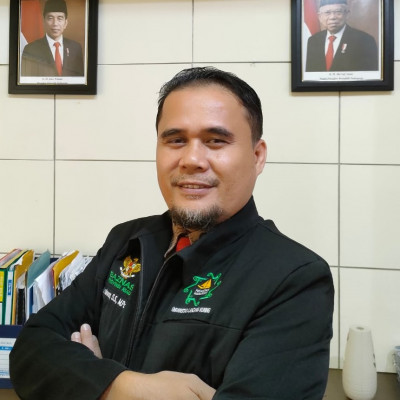Sessions / Location Name: P102
Physical Location
Location: P102
Building: Prime < Sookmyung Women's University, Seoul
Graduate STEM Student Perspectives and Implementation of Machine Translators in South Korea #3552
As technology advances, and more students have constant access to cell phones, laptops and tablets inside classrooms, the use of machine translation (MT) by language learners will rise. In order for instructors to better design courses they should strive to understand how students are using MT, as well as student attitudes towards this technology. This study examined the perspectives of South Korean graduate students at a STEM university towards the usage of MT in academic settings. This study featured a survey of 100 participants, and found positive correlations between the use of translators on written assignments, important academic work such as theses, as well as a proclivity to use machine translation to support daily academic tasks. Students also showed a strong belief that MT has benefits as a language learning tool. As a result of this study, language teachers may consider incorporating MT education within their curriculum.
Our Collaborative Journey as Advisors #3662
In this talk, the presenters will share their experiences of developing as teacher-advisors through participating in a 5- level advising course. Through their collaboration at University’s dormitory program, they could use that knowledge to enhance the student experience, autonomy and overall motivation (Goddard et al., 2010). In order to encourage reflection and promote learner autonomy in the dormitory, they changed the reflection journal format and transformed feedback sessions into goal-oriented advising sessions. In doing so, researchers also could reflect on their two-year journey of running the program and how the collaborative experience has helped them to put the theory of advising in language learning into practice. They will present the details of the project, challenges they experienced, results and some broader implications this may have. Time will be included for questions at the end of the presentation.
Providing Authentic Communication through a Discovery Experience #3661
This presentation introduces a pedagogical project aimed at igniting Japanese university English learners' willingness to communicate by providing an authentic communication experience from the everyday English classroom. The designed project consisted of three discovery missions for students that began when students received a box from overseas. By writing a letter and receiving a response, students created a presentation on what they learned about the sender. This pedagogically designed experience-based activity fostered an interest in communicating with dissimilar others using English as a communication tool. This project contributes one idea for practitioners who wish to incorporate authentic communication in their everyday lessons.
How can we learn what academics think about their peers’ opinions? #3660
Considering the dearth of interaction possible in the last three years, it is impossible to ignore the paucity of quality connections between academics. Our podcast project attempted to fill this gap in two ways: a) by using our academically-oriented podcast series to contact and interview leading academics in their disciple; b) by directly addressing the contents of previous interviews to ask for the experts’ reactions. We uncovered a ‘narrative’ in our work, encouraging other experts to join our discourse. We will present this narrative from experts in the field of English as a Medium of Instruction (EMI) and how the differences in opinion led to fruitful and engaging discussions that would have been impossible without our efforts during the time of COVID lockdowns. We will demonstrate the opportunities for qualitative analysis of long-form academic interviews to bring state-of-the-art academic conversations to a broad audience.
The Designing of English for MICE: Target Language Needed by the Industry #3658
This study aims to investigate English target language required in the operation of MICE (Meetings, Incentives, Conferences, and Exhibitions) business in Thailand. Data were gathered from 30 employees and executives who have at least 7-year work experiences in MICE sectors. The questionnaire, supplemented by a semi-structured interview, was designed to explore situations where the English language is necessary for workers to function successfully in the MICE industry and to examine issues that might hinder the successful use of English. Major findings indicated that productive skills of English in the target situations such as briefing and explaining concepts, scopes, and details of a MICE event and delivering a sales pitch to a client in English were the most important. Problems and challenges that frequently hampered the effective English communication among MICE employees were also specified. Findings from this study yielded useful information and had considerable implications for designing the syllabus and materials in English for MICE. That is, the course content should include integrated skills of English, with an emphasis on productive skills.
The Effect of Task Based Language Teaching (TBLT) on English Spoken Production and Spoken Interaction among ESL University Students in Malaysia #3657
The purpose of this paper is to discuss the need to explore the effect of Task-Based Language Teaching (TBLT) on English spoken production and spoken interaction among ESL university students in Malaysia. Most Malaysian ESL tertiary learners are facing difficulties communicating in English even though they have learned to use the language in school and this motivated the researcher to investigate this alarming situation. This study is a quasi-experimental research that utilized a mixed method of quantitative and qualitative research design. 64 ESL pre-university students and 2 ESL instructors were involved in this experimental research and instruments such as pre-test and post-test were used to measure students’ speaking performance. The Common European Framework of References (CEFR) for languages was used to identify students’ speaking proficiency levels. The result showed that the TBLT teaching intervention contributed to significant improvement in the students’ speaking performance.
Reading Out Loud: A Communicative Approach to a Reading Skills #3655
In contrast to the Japanese high school EFL context which tends to be passive and teacher-centered, this presentation introduces a learner-centered, communicative approach to university EFL reading. Here, comprehension is developed through a collaborative process where learners negotiate the meaning of text, with teacher input as necessary. In small groups or pairs, learners infer the meaning of new words from context, discuss the meaning of texts, and focus on discourse markers. This approach also employs extensive reading, where learners write reports and explain what they were able to grasp from graded readers, all in English. The presenter will show results from comprehension tests, actual student-written examples of ‘book reports,’ and survey results which show increased motivation towards reading and English lessons generally. The approach is a ‘strong’ version of task-based learning (Ellis, 2018), rooted in the principle of “using English to learn it (Howatt, 1984:279),” applied to a reading class.
Basic Psychological Needs Observed in a Self-Directed Learning CLIL Course #3652
In this presentation, the researchers will share findings from a research project of a CLIL course. The course focused on the facilitation of self-directed learning through the use of massive open online courses (MOOCs). Students received written advice from their instructors in their weekly learning journals and worked collaboratively with their peers, sharing ideas and realizations about their MOOC learning experiences. Through a deductive approach using basic psychological needs theory (a sub-theory of the self-determination theory (Ryan & Deci, 2017), the researchers coded the learning journals and final presentations of students (N = 15), identifying the emergence of the basic psychological needs (i.e., autonomy, relatedness, and competence). The implications shared in this presentation will be of benefit to teachers who aim to support students’ motivation, capacity for self-directed learning, and the development of learner autonomy.
The effect of COIL on student communication and soft skills #3507
This presentation looks at the use of Collaborative Online International Learning (COIL) from the perspective of Japanese students. Students from Japan, Spain, and Türkiye worked together on three major outputs connected to Sustainable Development Goals. The teachers designed the COIL elements based on the Pedagogy of Multiliteracies. Students worked in groups of five to seven and collaborated using video calls and text messages over the course of nine weeks. Students completed a pre- and post-intervention survey that focused on perceived communication competence, foreign language anxiety, and soft skills. The final survey included open-ended questions. Students completed three reflections throughout the COIL to share their thoughts on the group dynamic and their use of soft skills throughout the project. Based on the surveys and reflections, it appears that the COIL project had a positive effect on students perceived communication competence, foreign language anxiety, and on the development of soft skills.
English Medium Instruction in Polish higher education: What do the lecturers say? #3577
Imparting content through the medium of a second/foreign language is a form of education that has grown exponentially in tertiary education all over the world. Clearly, educational institutions with EMI are more favoured by students, hence English competes with Polish as the medium of instruction. This paper reports on the results of a survey of 59 lecturers from a university located in the capital of Poland where English is used as a means of instruction in selected programmes. Data were collected on the basis of an online questionnaire and subsequent interviews with lecturers. Based on the findings, a tentative conclusion can be drawn that the EMI programme is far from a completely developed practice aimed at promoting the institutions’ strategic internationalisation.
Training Summarization: Much More Than a Test-Taking Skill #3430
Summarizing is a language device that we all use daily to communicate our experiences and learned knowledge with others. However, it can be a difficult skill to acquire and master for language learners. This workshop will provide hands-on experience in how to prepare materials and train students to improve their summarizing skills for both listening/speaking and reading/writing. Using question-types based on the Pearson Benchmark Test, we will show techniques for improving students’ scores and how these skills apply to a much wider, richer context in real-world language use. Workshop participants will collaborate with presenters to create practice materials and learn about a variety of delivery methods for students to use both in class and at home.
Any Last Requests? #3596
This pecha kucha presentation is extemporaneous and based on audience suggestions about TESOL. The presenter asks the audience about topics at the conference they wanted to hear but didn’t get a chance to hear about. Key words will be put on a whiteboard or in a small notebook. The presenter has pecha-kucha slides prepared – 20 slides timed at 20 seconds each – but does not know in advance what topics will be requested. With the topics suggested, the presenter begins the presentation, addressing topics from the audience while connecting them to pecha kucha slides prepared in advance. The pictures may inspire connections or word choice while the presentation occurs. The pictures themselves will be simple, appropriate for public viewing, but unrelated to TESOL or other related fields. The presentation lasts six minutes and 40 seconds. The goal is that those in attendance see the topics suggested in a more creative, connected, and entertaining light.
What Makes Reading Hard Besides Vocabulary and Grammar? Parsing Long Sentences #3659
In classrooms a fair amount of time is given towards top-down activities: i.e. activating schema. Yet as Swan and Walter point out (2017), comprehension difficulties are likely the result of bottom-up deficiencies. One of which, needed for the Korean College Entrance Exam (SAT), is parsing long sentences with multiple clauses and/or multiple verbs and nouns. Sentence Diagramming is a rather old-fashioned method of teaching grammar to native speakers. It is sometimes used in Korea today. A search on https://academic.naver.com/ reveals nothing specific to learners in Korea. This makes one wonder: is sentence diagramming a waste of time?
In my experience, diagramming helps students but as with any method, there are limitations. This pecha-kucha discusses how diagramming can help students, which students it can help, and what skills it can help improve. This pecha-kucha also discusses its pedagogical limitations as a method.
Virtual International Trips: Promoting Cross-Cultural Learning and Global Citizenship at Home #3502
With international travel disrupted during the COVID-19 pandemic, the Graduate School of Education and Psychology (GSEP) at Pepperdine University developed virtual international trips to uphold its commitment to global leadership and change. Building off years of successful international travel, faculty and instructional designers collaborated to create synchronous and asynchronous online experiences intended to simulate on-ground itineraries. Follow the entire design process from iteration through implementation, explore the projects’ challenges and successes, and experience the highlights of this unique virtual learning journey. Importantly, see how intercultural perspectives and GSEP’s six filters of analysis are incorporated throughout to promote global awareness and authentic collaboration.
Designing Listening Module Based on Malay Local Genius for Indonesian Higher Education: The Power of Collaboration #3641
Partner Session (TEFLIN)
The purpose of the research is to develop a listening module based on Malay local genius as the teaching material and as pedagogical content knowledge for Indonesian higher education students. Indonesia’s education system has prioritized using local genius and collaborated with ICT to be the core of human resource development to face globalization. The scientific reason for using local genius is that the people have their way and belief to manage their life based on their own culture. The local genius can create their own identity and personality. The research and development (R&D) method was used in this research. This research follows ADDIE instructional design from Dick and Carey, which follows the steps; Analysis (needs analysis, task analysis, instructional Analysis) by gaining the data from the questioner and interview, Designing the listening module, Development and validation of the module by the experts of the listening module, Implementation of the listening module as the product testing, revised, and then the last step made an Evaluation to find the effect of the listening module toward students improvement in listening skill. The validation process of the module was made by experts using questionnaires and assessments in determining the validity and practicality of the module. The validation results of the feasibility of the content, design, and language of these modules have criteria of validity. The practicality of the evaluation by using one-to-one evaluation and group discussion of this module has very good in practicality.
Designing an Effective Business Communication Course for Workplace-ready EFL College Students #3578
The five key elements of business communication include practical, factual, concise and clear, and persuasive (Taylor, 2012). College EFL students, anticipating to carry out business communication effectively, rely on courses designed to incorporate the targeted elements. However, few studies were targeted at English for Specific Purposes, shedding light on business English particularly. This study aims to describe how an advanced business communication course should be prepared in the EFL context and report how effective its possible teaching activities will include. The study utilized questionnaire to elicit students’ expectations, and interviews to collect suggestions from the teachers, potential employers, and alumni. Three research questions—(1) What urgent skills will students learn most? (2) What activity types do students expect to see? (3) What will constitute effective business communication for EFL college students?—are used to guide this study. The findings suggested presentation and email-writing outweighed others, deserving immediate attention.
More or less? Group size in collaborative peer review #3574
Should I use pairs, groups of 3, 4 or more? The answer to this often-asked question usually depends on the aims of the lesson but is often guided by teacher intuition and not research. This study aims to address this issue with respect to one common task: peer review of writing. Following earlier research by the author that found more feedback moves in triads over pairs, this study compared triads and groups of four. The study involved two classes of university undergraduates (n=36) studying English in Seoul. There were three peer review sessions for three essays during one semester. Class A was divided into 4s, then 3s, then mixed 3s and 4s; Class B was divided into 3s, 4s, then mixed 3s and 4s. The results show more feedback moves were discussed in 3s rather than 4s, but this conflicted with student reflections. Implications for teaching are discussed.




















